I have traditionally prodded around in the corridor of uncertainty on where I stand on the dark art of sledging.
On the one hand some inspired exchanges between players on the field have entered the folklore of the game and the sport is richer for it – for example, little known cricketer James Ormond copped it from Mark Waugh, who asked how he was good enough to play for his country, to which Ormond retorted, “Maybe I’m not, but at least I’m the best player in my family”.
Then there’s Javed Miandad calling Merv Hughes a “fat bus conductor”, and Big Merv running past and saying, “Tickets, please!” after taking Javed’s wicket, or Herschelle Gibbs spilling a catch at short mid-wicket and Steve Waugh telling him he’d just “dropped the World Cup”.
There are many more great stories, and the game would be impoverished without them – indeed they’re so good that I and others question whether they are completely true.
On the other hand, however, there are the ugly incidents which the game should not tolerate.
An Australian player whispering “choo choo” in the presence of an opposing batsman who lost a relative in a train crash, for example – though the team strongly denies this ever happened.
Then there’s Michael Clarke telling Jimmy Anderson to get ready for a broken f***ing arm, and whatever it was that Quinton de Kock said about David Warner’s wife.
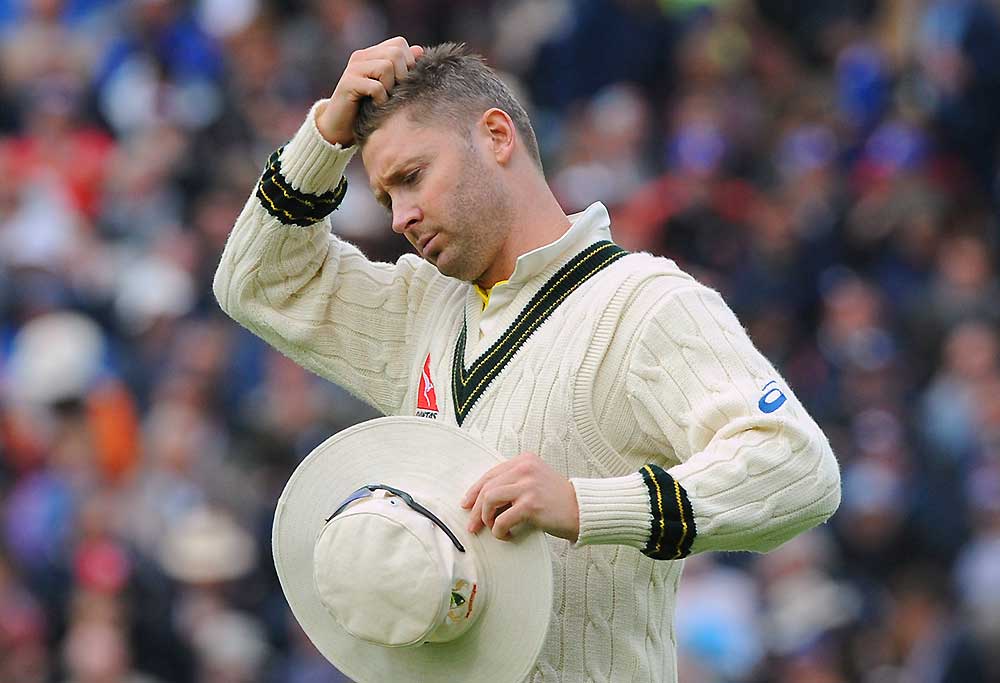
(AP Photo/Rui Vieira)
So some banter enriches cricket’s folklore and warrants celebration, whereas other exchanges leave an unsightly stain on the game and must be eradicated.
Players, and Australian players especially, talk about the existence of ‘the line’. They proclaim both that they know where said line exists and that they are supremely confident that they remain on the right side of it.
Some even talk about ‘headbutting the line’, incongruously asserting their virtue while invoking imagery so far outside the spirit of cricket that you have to question their understanding of right from wrong.
I suspect – and, again, I doubt I’m the first to express this thought – the line isn’t static. I’d wager a university study would demonstrate the line moves in direct proportion to the perpetrator’s departure from community standards. I anticipate that the study would also reveal that sledger and sledgee typically harbour very different ideas of where the line is drawn.
In other words, the line is a self-serving concept designed specifically to protect those who cross it.
It’s akin to a batsman, having just watched his off-stump cartwheel towards the wicketkeeper, being able to stride down the pitch with a bucket of white paint and define for himself where the bowling crease should be drawn before asking the umpire to declare the fatal delivery a no-ball.
So let’s explore whether we can identify what repartee should be nurtured and what verbal jousts should be expunged.
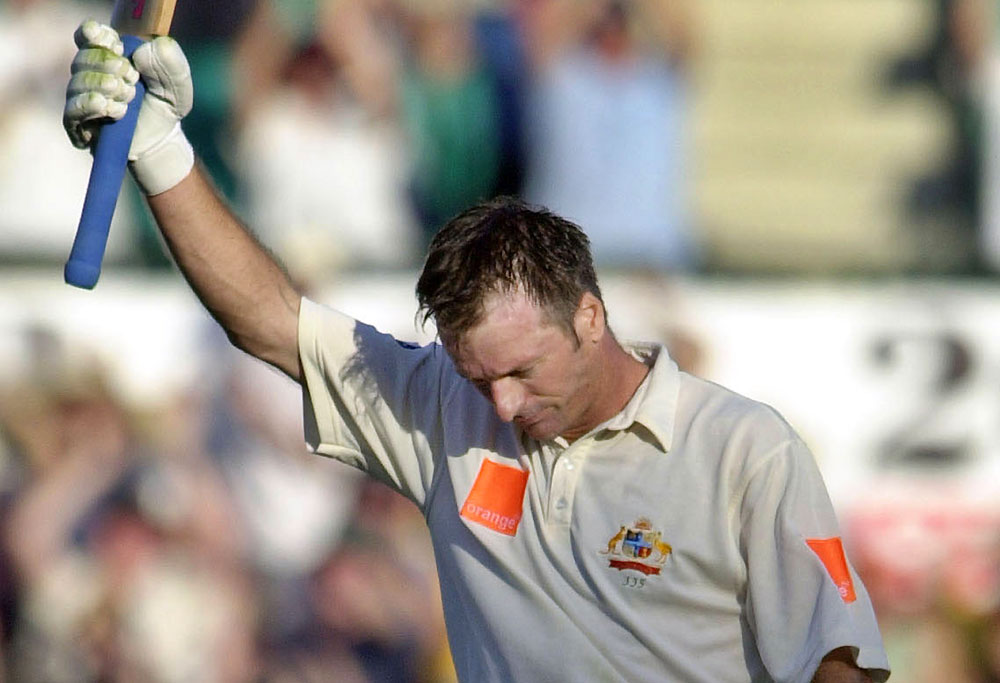
(AP Photo/Rick Rycroft)
The rules
Clause 2.1.4 of the Code of Conduct for Players and Player Support Personnel published by Cricket Australia states that a Level 1 offence includes “Using language or a gesture that is obscene, offensive or insulting during a match”.
To merit the finding of Level 2 offence, clause 2.2.8 states that, “Using language or gesture(s) that is seriously obscene, seriously offensive or of a seriously insulting nature to another player or player support personnel or any other third person during a match.”
First up, I’m struck by the lack of precision conveyed by the phrase “during a match”. Are words or gestures conveyed as the players leave the field after the winning run has been scored included? What about angry words exchanged at midnight between the second and third day of a Test match?
I have to be honest and also admit that the dichotomy created by these clauses caused a wry smile to spread across my dimpled face.
Saying something horrible about an opponent’s wife – dripping with X-rated content and tainted by racial vilification – only constitutes a Level 2 offence if you say it with a serious look on your face. Say the same thing in a character voice with a silly moustache and a spinning bow tie and you’re only guilty of a Level 1 offence.
Or perhaps the drafters used “seriously” as a synonym for “very”?
So only very obscene, very offensive or very insulting words constitute a Level 2 offence, which leaves garden variety obscenity, offence and insult within the bounds of a Level 1 offence.
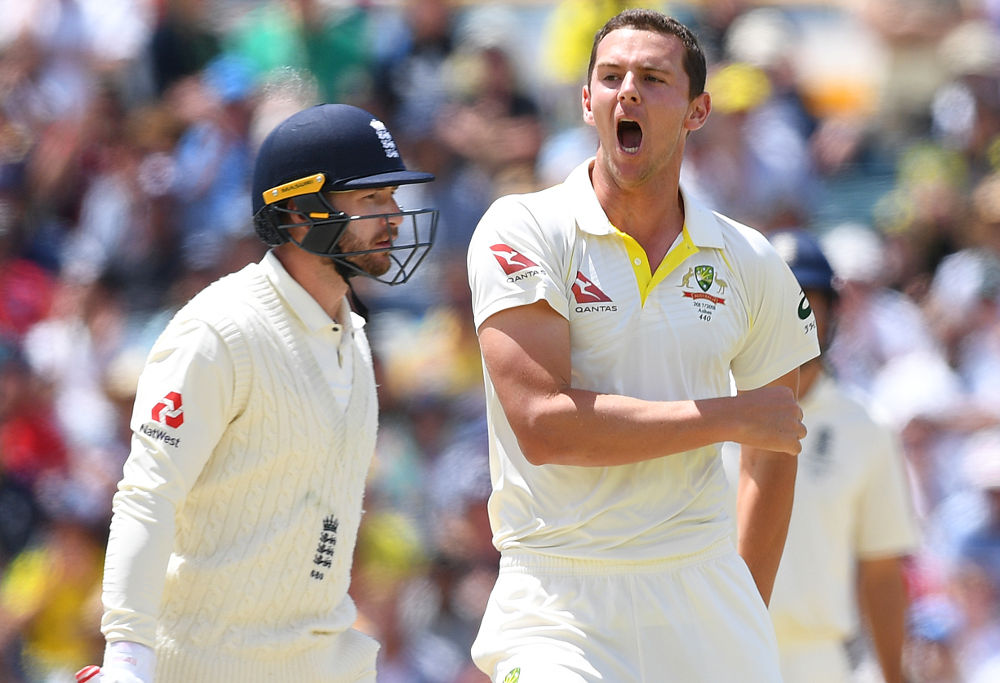
(AAP Image/Dave Hunt)
Where the nebulous line exists between a Level 1 offence and a Level 2 offence is close to impossible to define. It is, after all, heavily dependent upon the subjective sensitivity of the player being targeted.
Indeed whether the remark is obscene, offensive or insulting at all depends very much on whether or not the target has thick skin and a quick wit.
If, in the case of a famous sledge and retort, Ian Botham was insulted or offended when Rod Marsh implied that he was the father of Beefy’s children, it didn’t seem to affect his ability to quickly formulate or deliver a stunning comeback. History fails to record whether Marsh was offended by the retort.
David Warner, as the CCTV footage demonstrates, was highly offended by whatever De Kock said to him in that stairwell – so much so that he had to be restrained by his teammates. Whether De Kock said anything objectively more insulting than what Marsh said to Botham is not clear. Probably, but who knows.
My point is that in the face of a silver-tongued sledge, some players may retain sufficient fortitude to put the sledger back in their box with a witty rejoinder, but the same words delivered with the same tone may provoke another player into a barely controlled rage.
The former enters cricket folklore; the latter lives in infamy.
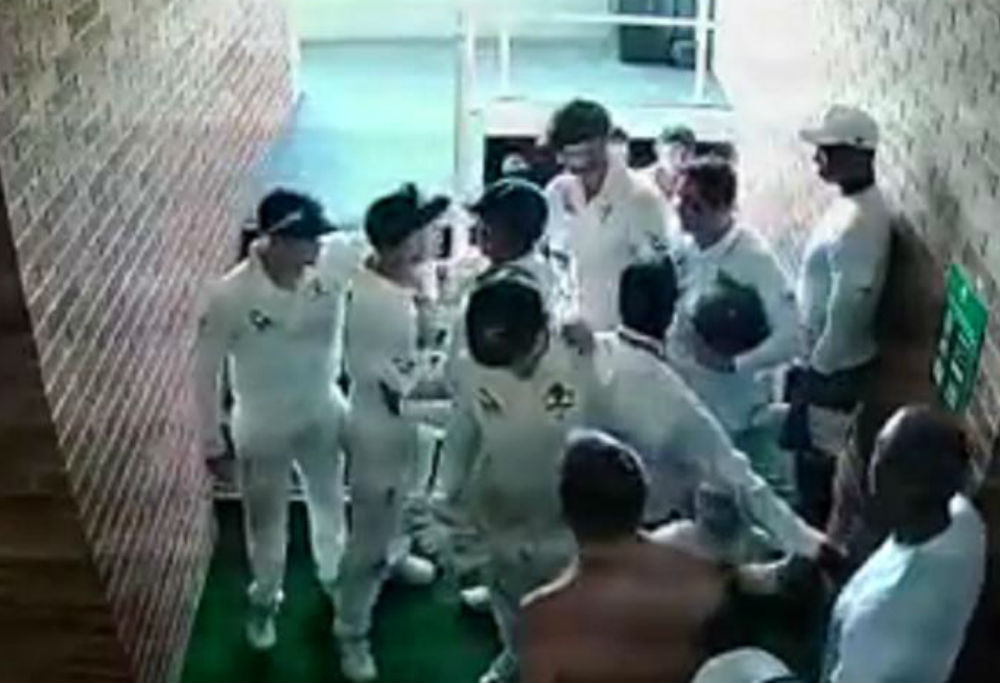
(Independent Media screenshot)
Defining the line
So where do we draw that infamous line?
I would welcome a rule where clever Oscar Wilde-esque sledging was encouraged whereas stupidly inane sledging, which would make you blush if you said it in front of your mother, was banned.
But Cricket Australia would probably need a troupe of ten judges from different cultures and age groups to score each sledge, with an average score of six or more being celebrated in folkloric cricket literature and an average score of five or below resulting in the perpetrator’s tongue being cut off. Perhaps CA could develop an app.
Given I cannot see this proposal gaining traction, our only option remains to do our best to define in words which verbal barbs are characterised as friendly banter and which are deemed to be offensive sledging.
Rather than introducing impossible to define distinctions between “offensive” and “seriously offensive” conduct – and indeed deciding whether conduct is “offensive” at all – I suggest that the Code of Conduct explicitly lists subjects of discussion which are off-limits and therefore on the wrong side of the line.
My crack at producing such a list includes:
- anything to do with another player’s family or friends;
- anything to do with sexual orientation, gender, religion or race;
- any threat or implied threat of violence; and
- any comment about human body functions.
I am somewhat saddened that the first category would preclude the Marsh and Botham exchange, but I am prepared to sacrifice what may be an apocryphal story to make it explicit that if you say anything about another player’s friends or family, you are on the wrong side of the elusive line no matter where it might be.
I have included the final category simply because if grown men want to sledge their opponents, their standard of humour should rise above juvenile, toilet-dwelling Benny Hill jokes which ceased being funny by the time you entered high school. Surely I’m not asking too much here,
If the subject matter listed above is defined to be on the wrong side of the line, then ample material remains on the fair-game side of the line for players to inflict mental disintegration upon their opponents.
Steve Waugh saying, “You’ve just dropped the World Cup” would be fine. So would the Javed-Big Merv exchange. Comparing Moeen Ali or any other player to a terrorist would not.
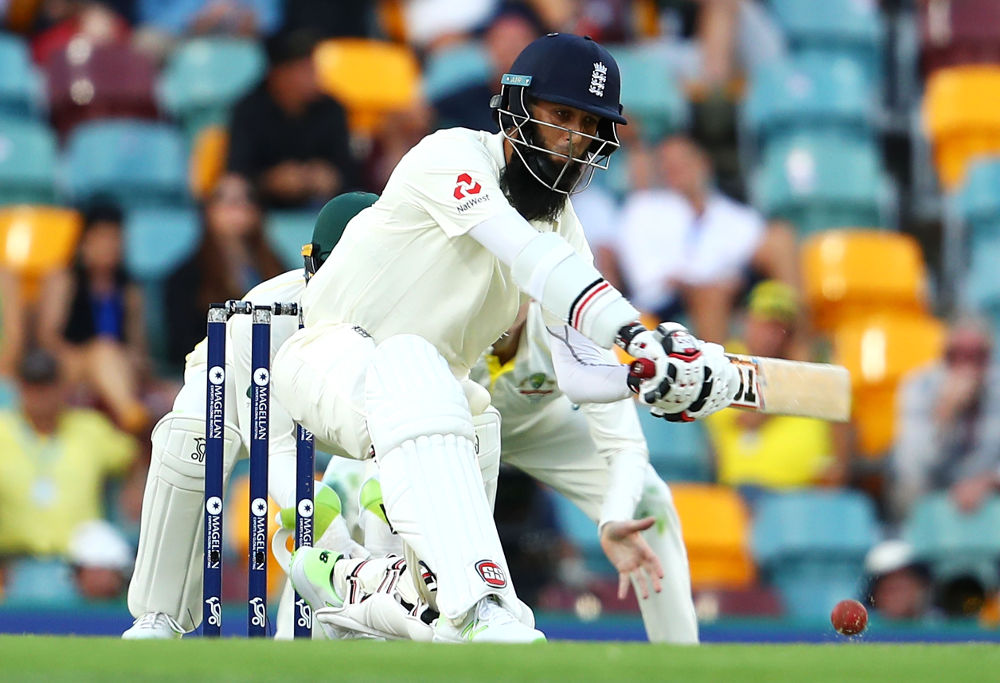
(Photo by Mark Kolbe/Getty Images)
Furthermore, anything to do with player technique or ability is a legitimate source of banter.
If a player is offended by remarks about how little drift and turn he gets on an off-spinner or how he appears to flinch when a short ball rises towards his chest, the player has a ready right of righteous reply; they can let the next off-spinner rip like a cobra or smack the next short ball so hard that nobody sees it until it bounces off the square-leg boundary.
If sledging is but an element of the competitive spirit – as the players would have us believe – then I see no harm in a verbal offensive being repelled in the legitimate contest between bat and ball.

































































































